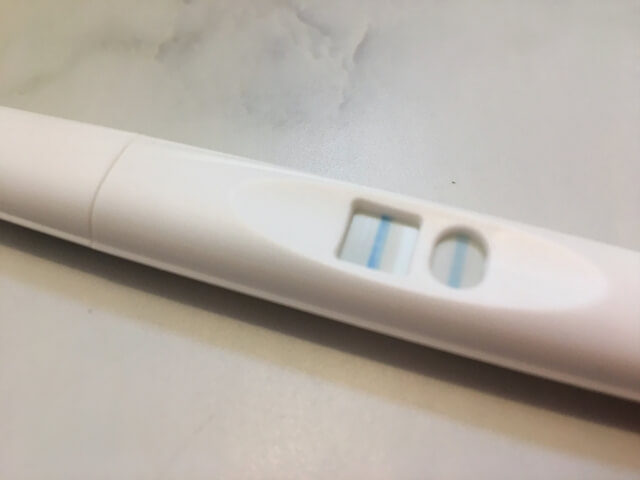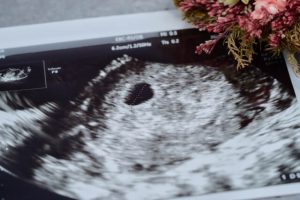Summary of this Article
Miscarriage is one of the painful events for pregnant women. Losing the life you have been blessed with can cause significant emotional damage. While it is best to prevent miscarriages from happening, it is important to understand the symptoms and causes to mitigate the shock if it unfortunately occurs.
- Types and Overview of Miscarriage
- Five Main Causes of Chemical Miscarriage
- Periods when Chemical Miscarriages are Common
- Is Chemical Miscarriage Likely to Recur?
- Preventing Recurrent Chemical Miscarriages
- Opting for NIPT (Non-Invasive Prenatal Testing) to Reduce Miscarriage Risk
- Frequently Asked Questions
Types and Overview of Miscarriage
Miscarriage refers to a condition where pregnancy cannot continue due to some reasons despite conceiving a baby. There are various types of miscarriages. For example, chemical miscarriage, missed miscarriage, spontaneous miscarriage, early miscarriage, threatened miscarriage, etc.
Additionally, miscarriage refers to the condition where the fetus exits the mother’s body before 21 weeks and 6 days of pregnancy. When the fetus passes away inside the uterus after 22 weeks and 0 days of pregnancy and is delivered as it is, it is called stillbirth.
In this column, we will focus on chemical miscarriage among miscarriages and introduce its causes and countermeasures. So, if you are feeling anxious about pregnancy, please refer to this information.
Five Main Causes of Chemical Miscarriage
Here, we will introduce the five main causes of chemical miscarriage. Chemical miscarriage refers to a condition where a pregnancy test shows a positive result, but upon conducting an ultrasound examination, the gestational sac where the baby should be found is not visible. It is considered that fertilization has occurred, but implantation did not continue, leading to miscarriage.
During chemical miscarriage, the bleeding that occurs is similar to menstruation, and there may be little abdominal pain or nausea. Therefore, there are cases where individuals are unaware of being pregnant and end up experiencing miscarriage. To formulate preventive measures against chemical miscarriage, it is important to first understand the underlying causes.
Abnormal Chromosomes of the Baby
One of the common causes of chemical miscarriage is believed to be chromosomal abnormalities in the fertilized egg, which will become the baby. Approximately 60-80% of miscarriages occurring in the early stages of pregnancy are attributed to chromosomal abnormalities. Problems with the number or structure of chromosomes prevent normal development, leading to miscarriage.
This is a phenomenon that can occur by chance during the processes of sperm and egg production, as well as fertilization. It doesn’t mean there must be abnormalities in both parents’ chromosomes. It’s important not to dwell on the idea that one’s own genetics are preventing the conception of a child.
Abnormal Hormone Secretion in the Mother
The secretion of hormones in the mother’s body plays a significant role in chemical miscarriage. When hormone secretion is stable, embryo development progresses smoothly, and the fertilized egg is more likely to implant. On the other hand, when hormone balance is disrupted, the risk of chemical miscarriage increases. Hormones that affect pregnancy and miscarriage include progesterone, estrogen, thyroid hormones, and prolactin.
For example, when progesterone is secreted, the uterine lining thickens, making it easier for the fertilized egg to implant. Estrogen is necessary for the maturation of follicles and the thickening of the uterine lining. However, excessive or insufficient secretion of estrogen can worsen the condition of the uterine lining and inhibit implantation.
Furthermore, abnormalities in thyroid hormones can disrupt hormone balance and increase the risk of chemical miscarriage. Excessive secretion of prolactin suppresses the secretion of progesterone and estrogen, worsening the condition of the uterine lining and increasing the risk of chemical miscarriage.
Maternal Aging
It is believed that the age of the woman also influences chemical miscarriage. Generally, it is said that the higher the maternal age, the more likely miscarriage is to occur. This is because the probability of chromosomal abnormalities in eggs increases with age. While the miscarriage rate in the 20s is said to be around 10%, it is reported to be over 40% in the 40s. Keep in mind that there is a fourfold difference in miscarriage risk just due to age difference.
Maternal Autoimmune Diseases
Maternal autoimmune diseases also increase the risk of chemical miscarriage. Autoimmune diseases occur when the immune system, which is responsible for eliminating bacteria and viruses invading the body, malfunctions and attacks the body’s own cells, considering them as enemies. Autoimmune diseases can damage normal cells and tissues as well. People who experience repeated chemical miscarriages may have autoimmune diseases as the underlying cause, such as antiphospholipid syndrome.
Uterine Diseases
Uterine diseases or problems with the uterine lining can increase the likelihood of chemical miscarriage. For example, abnormalities in the shape of the uterus since birth, uterine fibroids, and uterine endometrial polyps can contribute to this. It is believed that having uterine-related diseases or issues can hinder the implantation and growth of the fertilized egg, leading to chemical miscarriage.
Periods when Chemical Miscarriages are Common
Chemical miscarriages occur between the time when a positive result appears on a pregnancy test and when a gestational sac can be confirmed through ultrasound examination. Generally, a pregnancy test shows an accurate response around 5 weeks of pregnancy, which is about a week after the expected date of menstruation. The gestational sac can be confirmed around 5 to 6 weeks of pregnancy. Therefore, miscarriages that occur around 4 to 6 weeks of pregnancy are classified as chemical miscarriages.
Is Chemical Miscarriage Likely to Recur?
Chemical miscarriage, where a positive result is obtained on a pregnancy test but menstruation occurs soon after or a gestational sac cannot be confirmed on ultrasound, can be emotionally distressing even if it occurs just once. However, some individuals experience recurrent chemical miscarriages.
Here, we’ll explain why chemical miscarriages may occur repeatedly. It’s important to note that experiencing recurrent chemical miscarriages does not mean that one cannot conceive or give birth. On the contrary, maintaining a positive outlook and considering the possibility of pregnancy is essential.
Reasons for Recurrent Chemical Miscarriages
One possible reason for recurrent chemical miscarriages is that there may be some issue with implantation. Chemical miscarriages occur earlier in pregnancy compared to typical miscarriages. Since they occur shortly after implantation, it is believed that there may be some problem with the implantation process itself.
However, it’s important to consider that the quality of the egg also plays a role in the establishment of pregnancy. For women in their early thirties or younger, where egg aging is not as advanced, implantation may be the primary concern. For women in their late thirties and beyond, it’s more likely that the egg quality could be the contributing factor.
Does Repeated Chemical Miscarriage Lead to Infertility?
On the internet, you may often come across the term “recurrent miscarriage” along with chemical miscarriage. Recurrent miscarriage refers to the condition where pregnancy is established, but two or more miscarriages or stillbirths occur, ultimately resulting in the inability to have children. While chemical miscarriage is not categorized under typical miscarriage, some individuals may worry that experiencing repeated chemical miscarriages could lead to recurrent miscarriage. However, at present, chemical miscarriage is distinguished from typical miscarriage, and it is not diagnosed as recurrent miscarriage.
Preventing Recurrent Chemical Miscarriages

Chemical miscarriage occurs in the early stages of pregnancy, and because a positive result is obtained on a pregnancy test, it can be very shocking for many people. It’s important to take measures to prevent psychological damage from accumulating due to repeated occurrences. Here, we will introduce preventive measures to avoid recurrent chemical miscarriages.
Consulting a Maternity Hospital
As one experiences chemical miscarriages repeatedly, advancing age may make conception itself more difficult. To avoid such a situation, it’s important to visit a maternity hospital’s obstetrics and gynecology department even in the case of chemical miscarriage and explore improvement methods together with a doctor.
Experiencing repeated chemical miscarriages may lead one to give up on pregnancy out of fear of going through the sadness again or cause psychological damage. In some cases, it may even interfere with work or daily life. Before the psychological damage becomes too great, seek counseling at the hospital to organize your thoughts and feelings.
Use Pregnancy Tests on Schedule
It’s advisable to avoid using pregnancy tests earlier than planned and wait until the scheduled time for the test. Pregnancy tests are typically recommended to be used one week after the expected date of menstruation. Conducting the test before this time and knowing about a chemical miscarriage that you might not have otherwise known about can cause significant psychological distress. To prevent feelings of instability, use pregnancy tests at the appropriate time.
Strive for a Stress-Free Lifestyle
Experiencing repeated chemical miscarriages can lead to accumulating stress, which in turn may disrupt lifestyle habits and hormone balance. This disruption can make one more prone to recurrent chemical miscarriages. To break this vicious cycle, it’s important to strive for a stress-free lifestyle and find stress-relief methods that work for you.
During fertility efforts, stress-relief methods could include gentle exercise, aromatherapy, and making time for hobbies. Increase the time for activities you enjoy and be mindful of cultivating a stress-free lifestyle.
To Reduce the Risk of Miscarriage, Consider NIPT (Non-Invasive Prenatal Testing)
Miscarriages, including chemical miscarriages, often have unclear causes. However, one of the known factors is chromosomal abnormalities. To ensure stability in mental well-being from pregnancy to childbirth, it’s important to identify the risk of miscarriage early on.
At Hiro Clinic, we offer NIPT (Non-Invasive Prenatal Testing). This test can be conducted as soon as pregnancy is confirmed through ultrasound, allowing for the early detection of the risk of miscarriage due to fetal chromosomal abnormalities. Consider this test to reduce anxiety during pregnancy.
【References】
- Causes, Types, and Prevention of Miscarriage | Yokohama Women’s Clinic【Tekino Women’s Clinic】
- Miscarriage and Stillbirth | Women’s Health Issues | Support Site for the Mind and Body of Working Women
- 【Expert Explanation】What is Chemical Miscarriage? | Sangenjaya ART Ladies Clinic
- Chemical Pregnancy (Chemical Miscarriage): Symptoms and Causes of Early Miscarriage | Women’s Health, Hearst Fujingaho Co., Ltd.
- 【Chemical Miscarriage】The Role of Hormonal Balance and Implantation | Sangenjaya ART Ladies
- Chemical Miscarriage: What Is It? Causes and Symptoms? Does It Occur in the Very Early Stages of Pregnancy?【Supervised by Obstetricians and Gynecologists】 – EverSense Co., Ltd.
- Reasons for Repeated Chemical Miscarriages and Three Countermeasures | Tokyo Minerva Clinic
- Definition of Recurrent Miscarriage / Research on Recurrent Miscarriage – Research on the Re-evaluation of Recurrent Miscarriage Treatment and Development of New Treatment Methods | Commissioned by the Japan Agency for Medical Research and Development (Ended)
- 【Supervised by Physicians】What Is Chemical Miscarriage? Causes, Symptoms, and What Happens Next with Pregnancy? | Tamahiyo
Q&A
-
QWhy Does a Pregnancy Test Show Positive Results in Chemical Miscarriage?A pregnancy test shows a positive result because it reacts to the hormone hCG (human chorionic gonadotropin), which begins to be secreted with the implantation of the fertilized egg. When the secretion of hCG hormone reaches a certain level, it triggers a positive reaction on the test. Despite being in the early stages of pregnancy, implantation has already occurred in chemical miscarriage. Therefore, depending on the sensitivity of the pregnancy test and the timing of the test, it is possible to get a positive result.
-
QCan Chemical Miscarriage be Treated?Chemical miscarriage is typically managed through observation without specific treatment procedures such as surgical intervention. However, if chemical miscarriage occurs three or more times, it is likely that there is an underlying cause. In such cases, it is advisable to consult a doctor and seek medical advice.
-
QCan You Get Pregnant After Chemical Miscarriage?After experiencing a chemical miscarriage, menstruation typically resumes as usual. Therefore, it is still possible to become pregnant after a chemical miscarriage. Chemical miscarriage does not make it more difficult to conceive. Those who are trying to conceive do not need to give up hope and can continue their efforts to conceive as before.
Article Editorial Supervisor

Dr Hiroshi Oka
NIPT specialist clinic, MD
Graduated from Keio University, School of Medicine
 中文
中文






















